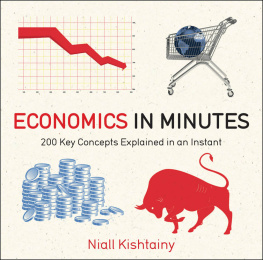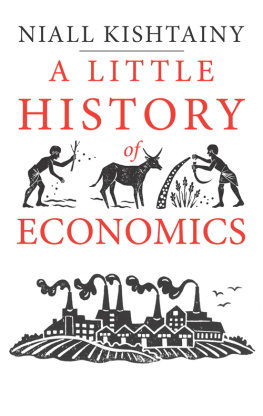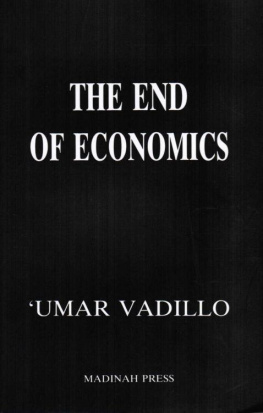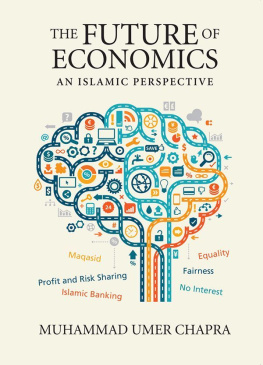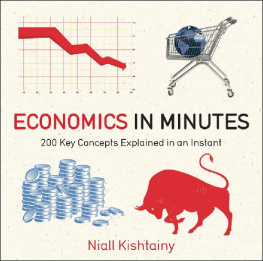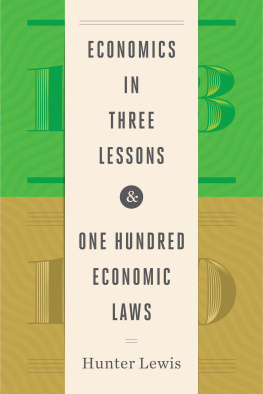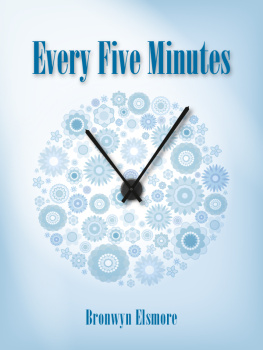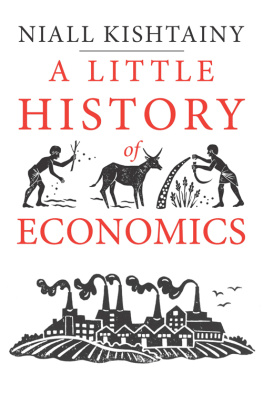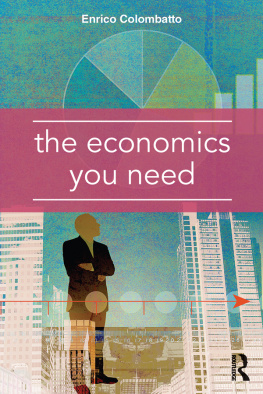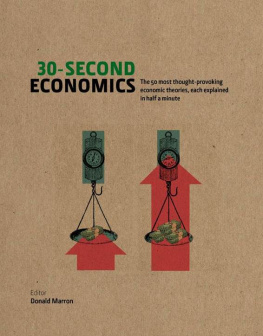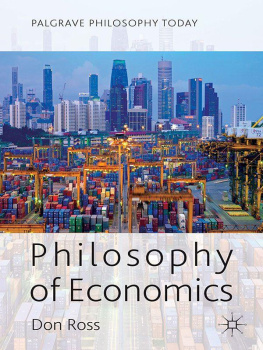Kishtainy - Economics in Minutes
Here you can read online Kishtainy - Economics in Minutes full text of the book (entire story) in english for free. Download pdf and epub, get meaning, cover and reviews about this ebook. City: London, year: 2014, publisher: Quercus, genre: Romance novel. Description of the work, (preface) as well as reviews are available. Best literature library LitArk.com created for fans of good reading and offers a wide selection of genres:
Romance novel
Science fiction
Adventure
Detective
Science
History
Home and family
Prose
Art
Politics
Computer
Non-fiction
Religion
Business
Children
Humor
Choose a favorite category and find really read worthwhile books. Enjoy immersion in the world of imagination, feel the emotions of the characters or learn something new for yourself, make an fascinating discovery.
- Book:Economics in Minutes
- Author:
- Publisher:Quercus
- Genre:
- Year:2014
- City:London
- Rating:3 / 5
- Favourites:Add to favourites
- Your mark:
- 60
- 1
- 2
- 3
- 4
- 5
Economics in Minutes: summary, description and annotation
We offer to read an annotation, description, summary or preface (depends on what the author of the book "Economics in Minutes" wrote himself). If you haven't found the necessary information about the book — write in the comments, we will try to find it.
Economics in Minutes — read online for free the complete book (whole text) full work
Below is the text of the book, divided by pages. System saving the place of the last page read, allows you to conveniently read the book "Economics in Minutes" online for free, without having to search again every time where you left off. Put a bookmark, and you can go to the page where you finished reading at any time.
Font size:
Interval:
Bookmark:

NIALL KISHTAINY

First published in Great Britain in 2014 by
Quercus Editions Ltd
55 Baker Street,
7th Floor, South Block
London
W1U 8EW
Copyright Quercus Editions Ltd 2014 Text by Niall Kishtainy Illustrations by Tim Brown Design and editorial: Pikaia imaging Design assistant: Kathryn Brown
All rights reserved. No part of this publication may be reproduced, stored in a retrieval system, or transmitted in any form or by any means, electronic, mechanical, photocopying, recording, or otherwise, without the prior permission in writing of the copyright owner and publisher.
The picture credits constitute an extension to this copyright notice
Every effort has been made to contact copyright holders. However, the publishers will be glad to rectify in future editions any inadvertent omissions brought to their attention.
Quercus Editions Ltd hereby exclude all liability to the extent permitted by law for any errors or omissions in this book and for any loss, damage or expense (whether direct or indirect) suffered by a third party relying on any information contained in this book.
A catalogue record of this book is available from the British Library
eBook ISBN 978 1 78206 650 7
Print ISBN 978 1 84866 491 3
You can find this and many other great books at:
www.quercusbooks.co.uk

What makes some societies richer than others? Why do banks crash? How high should taxes be? These are questions that economists try to answer, but often disagree about. To the layman, economics can seem an obscure language one filled with jargon and complicated mathematics. And economic news can be bewildering, as share prices soar and crash, and the economy lurches from crisis to crisis. In fact, underneath the specialist terminology, much economics comes down to some fairly simple principles. This book will give you a flavour of theories about how the economy works and how it should be managed.
What actually is economics? The term was used by the Ancient Greeks and comes from a Greek word meaning management of the household. Nowadays, economics encompasses much more than this, but households and individuals have always been building blocks of the economy. People make decisions about what to buy with their incomes and how much to work. In doing this they encounter a basic economic fact of life: resources such as food, electricity or time are limited and choices have to be made about what to consume and what to produce. It is people who make these choices, so explanations of human behaviour are a central part of economics what makes a consumer buy a new computer, a businessperson build a factory, and a worker accept a job in a far off city?
Most economists think of their subject as a science: they try to uncover general laws that govern economic phenomena, such as trends in unemployment just as physicists look for laws that explain the acceleration of a rocket. But finding laws of human behaviour is much harder than explaining the path of a rocket. This is why economists disagree so much, for example on whether the government should spend more money to pull the economy out of recession, or on the levels at which public debt is sustainable. This book demystifies the complex vocabulary in which these debates are conducted, boiling down economic concepts into accessible explanations that will hopefully make the important and influential ideas of economics easier to understand.

At its core, economics is a theory of human behaviour. Economists see people as rational beings that respond with consistency and logic to economic variables such as prices and interest rates, and even to things like the weather, which can affect the economy. What this boils down to is that people make decisions in a way that maximizes their economic pay-off they will always buy the car or coat that is exactly in line with their preferences, at the lowest price possible.
Economics version of rationality requires people to be able to gather and assess information for example, the prices and characteristics of different goods and to then calculate the best decision with ease. In reality, far from being cold, rational calculators, people are often capricious and emotional, and may at best make economic decisions that are good enough or based on plausible rules of thumb rather than a thorough reckoning. Nevertheless, economists see rationality as a useful simplification and use it as a basis for most of their theories.

Resources are finite at any point in time there is only so much wheat, coal or cement to go around. Resources can be used in myriad ways: cement could be used to build new homes or renovate factories, wheat may be processed into various foods and consumed by different people. New houses, better factories and more nutrition are all worth having, but because resources are finite, we cannot have them all: how to choose between them is a fundamental question of economics.
Economists see the problem in terms of trade-offs: competing options each have costs and benefits, but the best will be that which maximizes overall benefits over costs. The analysis of the trade-offs inherent in allocating scarce resources is the essence of modern economics: British economist Lionel Robbins described it as the science which studies human behaviour as a relationship between ends and scarce means which have alternative uses. Economists have come to believe that the market offers a powerful way of deciding between these uses.

Economics posits an underlying logic to human behaviour: whether it be a purchase of food or a choice about savings, all decisions are aimed at maximizing utility. If I prefer strawberries to bananas I am said to gain more utility from strawberries than bananas, perhaps quantified as a utility of four compared to two. Maximization of utility is the sole aim of rational economic man, and while economics is often thought of as the study of money, money is simply needed to buy things, and the utility generated is the driver of behaviour.
Utility is subjective: strawberries add to my well-being but reduce that of someone who dislikes them. Early theories saw utility as a scale like money: someone with a utility of four was twice as happy as someone with a utility of two. But because it is impossible to directly observe, economists now think of it as a ranking we can say someone gains more utility from strawberries than bananas because we see his choice, but cannot really measure how much absolute utility they provide.

Font size:
Interval:
Bookmark:
Similar books «Economics in Minutes»
Look at similar books to Economics in Minutes. We have selected literature similar in name and meaning in the hope of providing readers with more options to find new, interesting, not yet read works.
Discussion, reviews of the book Economics in Minutes and just readers' own opinions. Leave your comments, write what you think about the work, its meaning or the main characters. Specify what exactly you liked and what you didn't like, and why you think so.

